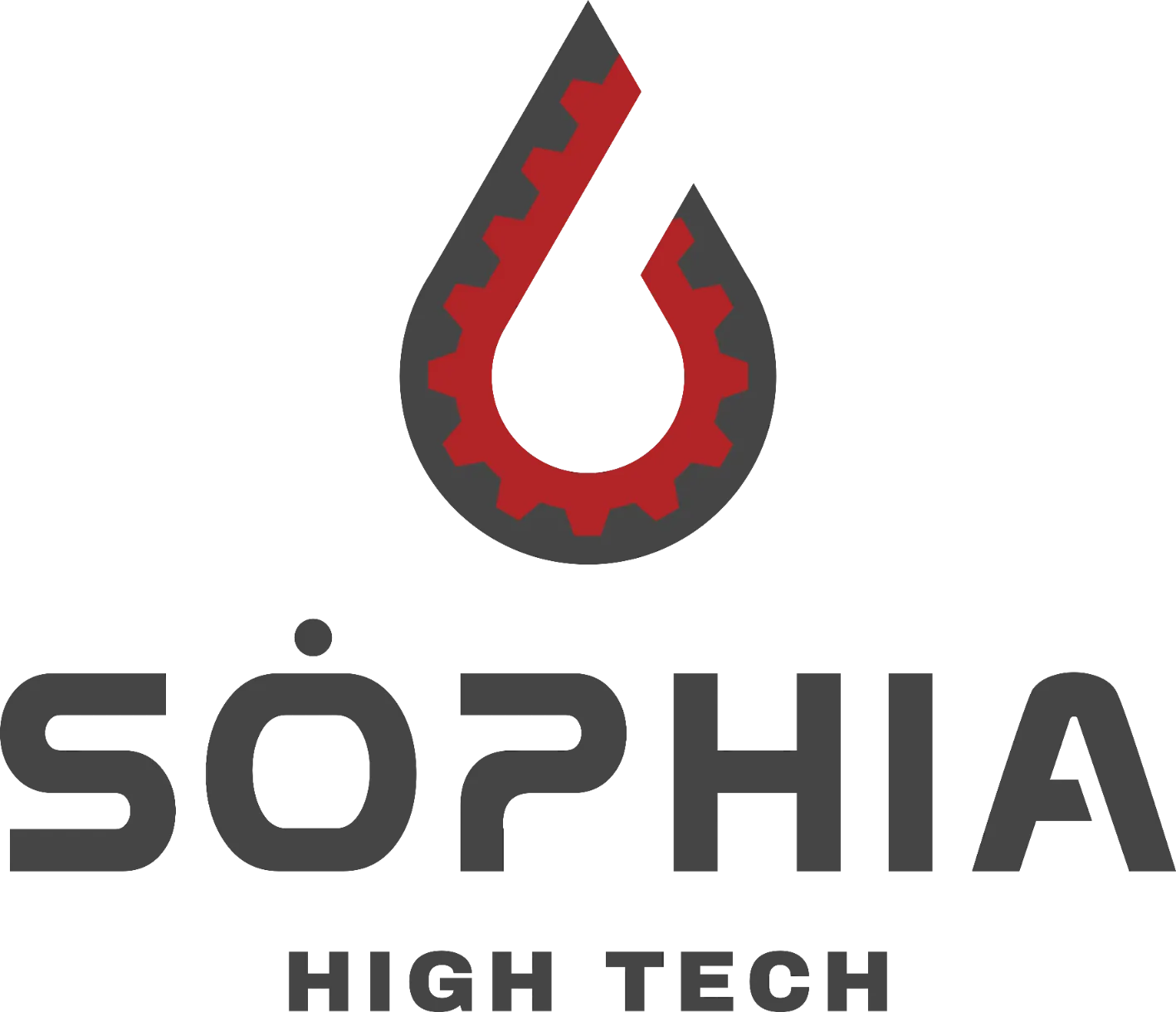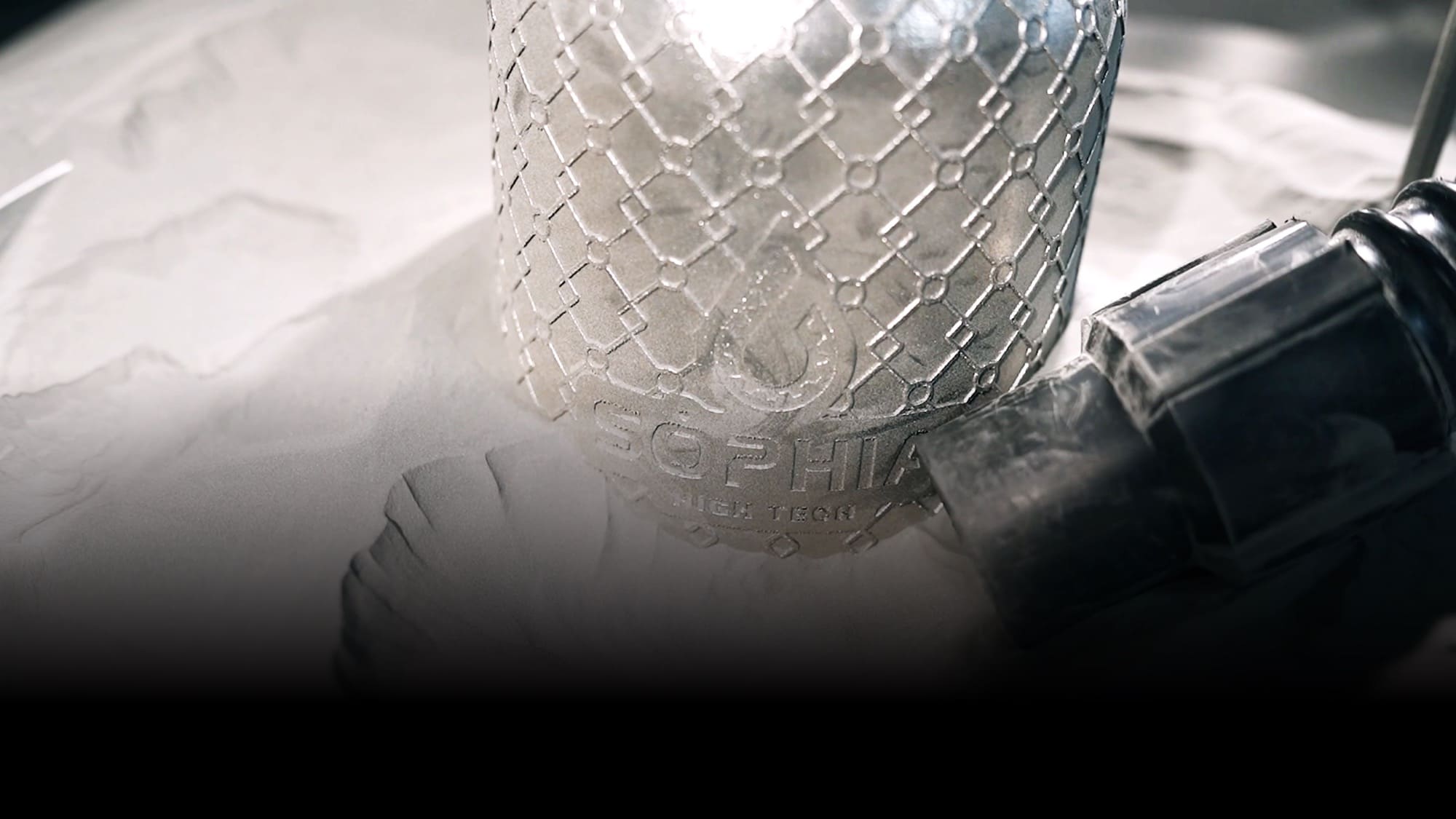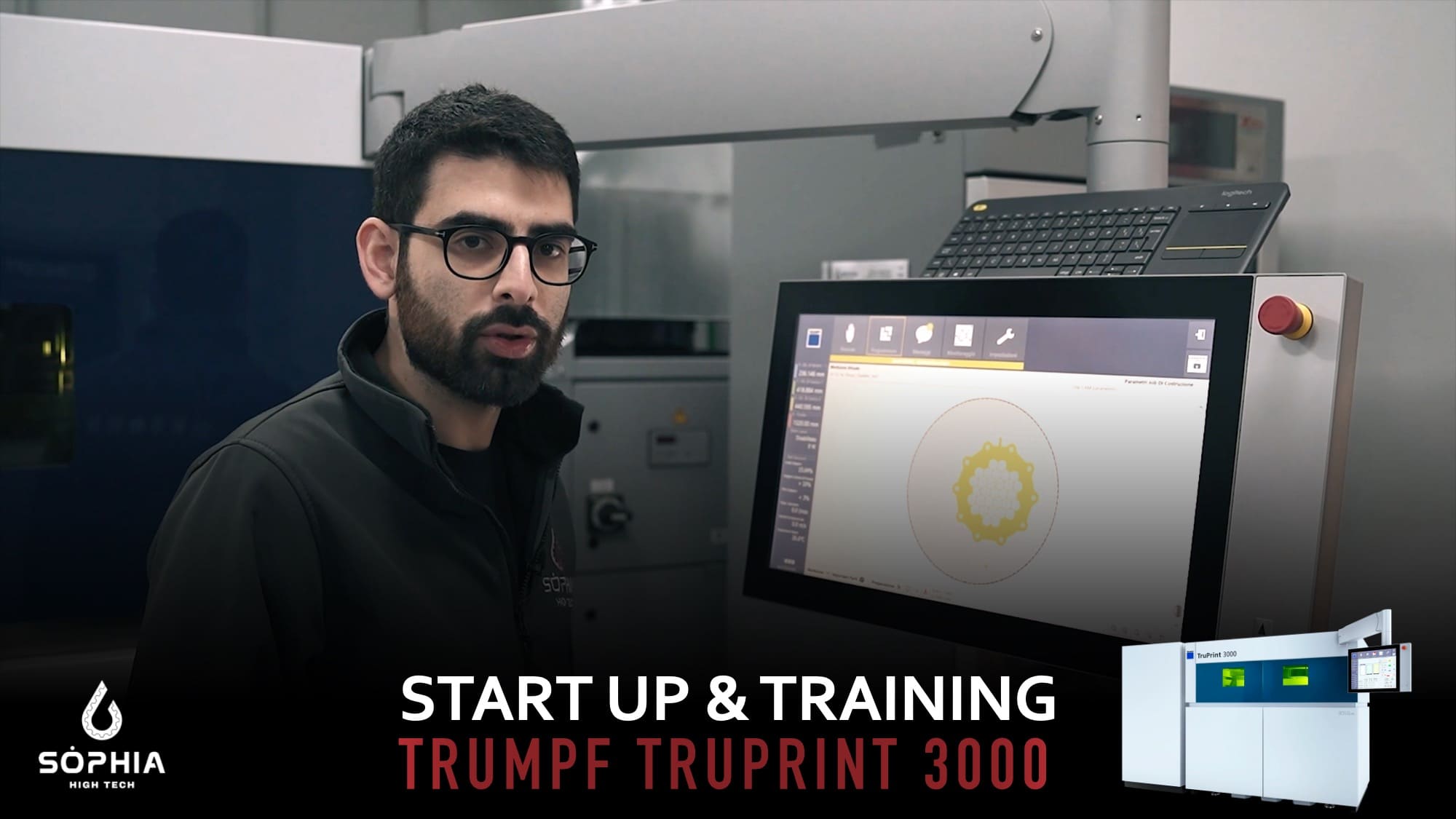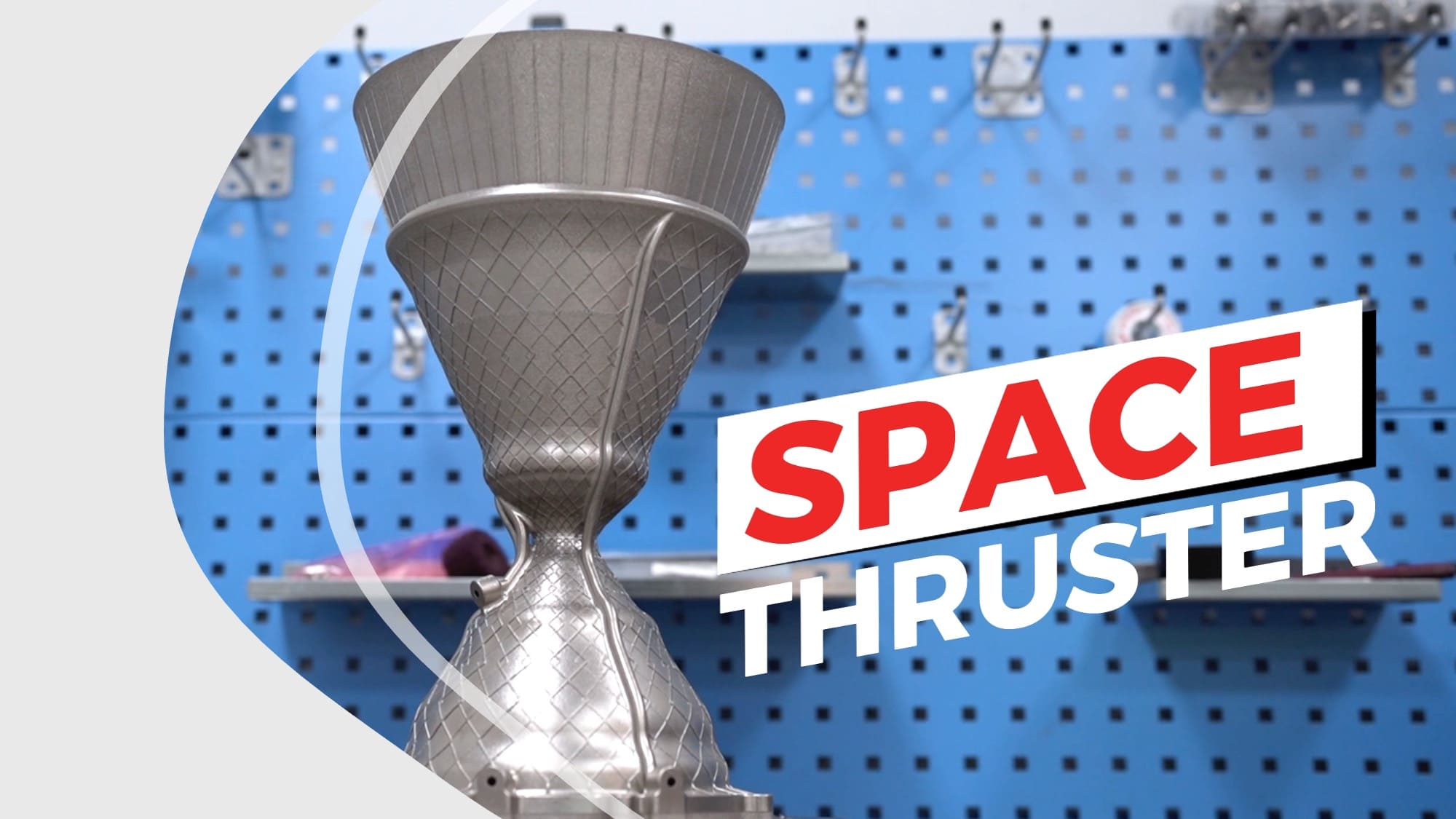The new frontier of Additive Manufacturing
Additive manufacturing is nothing new in the Aerospace world, in fact more and more companies are adopting this innovative technology, for example for 3D printed space engines.
Sòphia High Tech collaborates with various primary level aerospace OEMs, to define a new industrial approach that exploits both the advantages of Additive Manufacturing and the current materials (powders) on the market, qualified for the Space sector, with the aim of varying the way Parts and Systems are designed, manufactured and maintained.
To guarantee this approach (unique in the sector), Sòphia High Tech has made (and continues to make) significant investments, guaranteeing the Customer a “turnkey” product, from concept design to manufacturing, integrating the delicate process of testing and qualification of space parts in accordance with the ECSS-Q-ST-70-80C standard, released by the European Space Agency on 30 July 2021.
In fact, Sòphia manufacturing department uses the most cutting-edge technological processes (ALM and CNC machining) to produce space components in metal alloy, both relating to the structural and propulsion domains (i.e.: combustion chambers, thrusters, injection plates, injectors, nozzles and fuel tanks).
Among the latest investments implemented in 2023 by Sòphia, in relation to the repeatability/scalability and sustainability of the SLM process [Selective Laser Melting] there is the TruPrint 3000. The TruPrint 3000, produced by TRUMPF, is a universal medium format machine (LMF / PBF / LPBF) with integrated management of manufactured components and powder. With a build volume of 300 mm in diameter and 400 mm in height, the TruPrint 3000 adapts with extreme flexibility to the custom requirements of Sòphia’s aerospace Customers.
Using this system, productivity has doubled and Part costs (development and production) have been reduced, regardless of the geometry of the components. The automatic monitoring and calibration of the laser during the printing job allows for better quality and reliability of the 3D printed components. The Melt Pool Monitoring management and control system, with which the Sòphia is equipped, performs a quality control in parallel with the construction job, issuing a robust process validation report.
Quoting the words of Antonio Caraviello, CEO of the Company:
“Through the investment of this innovative ALM machine, we once again confirm our main objective: the pursuit of perfection, a fundamental condition for our work: developing and manufacturing aerospace parts”
Not just Additive Manufacturing
In order to provide a turnkey aerospace component, made in 3D Printing, it is necessary to integrate precision mechanical processing, which is fundamental after the process of creating a part in additive manufacturing. In fact, although Sòphia High Tech produces with a near-net-shape approach, ensuring an as-built product (in ALM) close to the final part, subsequent CNC machinings downstream of the SLM process are mandatory. This phase ensures the desired shapes, geometries, roughness and mechanical tolerances required in the construction drawing [DWG]. In particular, both Milling and Turning processes are used… and… in Sòphia also the integration of both processes.
In fact, accompanying the TruPrint 3000 in the best possible way, the Company has also invested in machining by integrating an innovative Multitasking CNC Machining Center (5-axis turning/milling) into its fleet of machines: the MULTUS B250 II by OKUMA.
This manufacturing machine combines the advantages of the turning process (dual-spindle) with a continuous 5-axis CNC milling system. With a working volume of D600 mm for a length of L750 mm and 160 tools, the MULTUS is equipped with a counter-spindle that guarantees high positioning repeatability, ideal for machining space propulsion components, which require machining from both sides and above all remarkable drilling precision, to ensure excellent performance of the fluidic connections. At Sòphia, the goal is the minimum human impact to achieve the highest level of quality/repeatability.
For optimal stability, in the OKUMA machine, all linear guides are equipped with cylindrical rollers integrated entirely into cover casings, and the Thermo-Friendly Concept guarantees high measurement stability, even in the event of variations in environmental temperature.
Projects in progress
Our SLM and CNC Machining integration process is qualified to produce Space Parts with both complex, customized shapes and surfaces. The process complies with the latest directives released by ESA [European Space Agency]. All sub-phases of the processing cycles are always verified and characterized by marked process repeatability and scalability.
In particular, Sòphia High Tech works continuously on the creation of:
- Propulsion components used in engines for launchers, rockets and missiles. These components, in addition to being lighter and capable of maintaining or improving the resistance of the materials, use green fuels;
- More efficient Satellite Thrusters, to guarantee a product that increasingly complies with the technical/advanced requirements to be implemented;
- Fuel Tank, optimized in external and internal geometric shapes;
- Primary (and Secondary) Structures for Missiles, Satellites and Launchers, lightened, both through the application of Lattice Structure and topologically optimized geometries.
Unlike traditional manufacturing, direct metal printing allows you to 3D print nozzles, fuel pre-burners, valves, manifolds and other propulsion systems that optimize the use of space and materials. This allows you to improve functionality and at the same time reduce production times, reducing costs and weight of components. In this direction, Sophia is investing significantly with the aim of implementing unique know-how in the sector day-by-day. This approach has allowed the Company to be involved in the development, implementation and integration activities of the innovative MPGE [Multi-Purpose Green Engine] space propulsion system. In this project, relating to the Contract n. 2023-8-I.0 of the ITALIAN SPACE AGENCY [ASI] to which AVIO SpA is entrusted, Sòphia High Tech has been chosen by AVIO SpA for the execution of the MAIT [Manufacturing, Assembly, Integration & Testing] phase of the MPGE Engine.
A “green” liquid propellant engine, created largely through ALM and CNC integration, which will be used for future In-Orbit Servicing and Space Logistics applications, representing a strategic asset for Italy and the Europe in the context of the Italian-led projects of the ASI and in the ESA programs, strengthening and enhancing the skills of the national industrial chain in the sector, as part of the future In-Orbit Servicing and space logistics programs. The project involves a technological research and development activity concerning the design, development and qualification of a green multi-purpose engine for orbital and sub-orbital applications [IOS, VEGA-C, VEGA-E and Space Rider].







